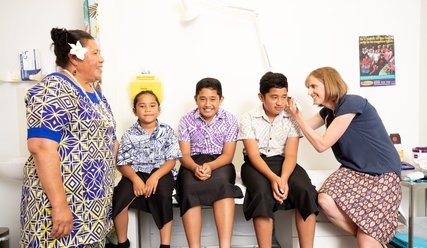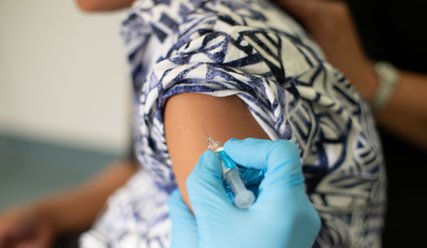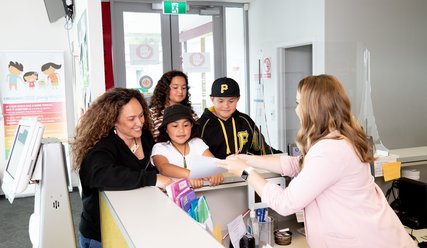Proactive immunisation for Māori tamariki will save lives
By Dr Ranche Johnson, Clinical Facilitator at National Hauora Coalition
3 August 2022
Category: Equity
Share
ALERT: childhood immunisation rates have fallen below the level required to protect against outbreaks of measles and pertussis.
The sharp decline in timely childhood immunisation for Māori since the COVID-19 pandemic has led to dangerously low rates of coverage. At six months of age only 32.4 percent of Māori babies in Counties Manakau are up to date on immunisations. In Auckland and Waitemata it’s 50 percent.
We need to do better. We need to urgently target under-vaccinated tamariki Māori who have the lowest immunisation rates in Aotearoa, and Pacific babies whose rates lag behind too.
Structural change is needed to address the systemic and attitudinal barriers that Māori face when accessing timely immunisation and to provide options for whanau. Primary care has consistently failed to deliver equitable childhood immunisation. We need to do better and need to urgently target under-vaccinated tamariki. While acknowledging the huge strain that primary care is facing, we need to consider what we can do now to improve immunisation service delivery in primary care to avoid a new wave of vaccine preventable disease.
The following story depicts the experiences that many whanau have, and we ask that you think about how we can deliver more appropriate and acceptable care.
“When my baby turned six weeks old, I rang the GP to get an appointment for her immunisation. I had to ring three times to get through. When we finally got through, they said that we owed $20 on the account from some phone calls. I booked for the next week so I would have the money to pay.
On the day of the appointment my other kids had colds so they were home from school and even though it wasn’t COVID, you’re not allowed to bring your other children in to the doctor’s appointments, so we couldn’t go for her shots. So, I booked another appointment for the next week.
Next week my in-laws got sick, my father-in-law was in hospital and my husband needed the car that day to take him up to the hospital and help his mum, so we couldn’t get there. I tried to get my sister to take us, but she didn’t have a car seat. I booked again for 10 days later, we were short on money that week as my husband had taken time off work, so we needed to wait to get money for petrol and fees we owed for the clinic.
I finally got to take my baby to the doctors when she was nine weeks old. We had to answer lots of questions before we were even allowed in the door, but we’re getting used to that these days. I tried to keep her all wrapped up while waiting outside, and away from anyone else in the waiting room, someone in there was coughing; it’s scary these days with COVID around.
When I saw the nurse, she commented that we were overdue for the injections. She was new, we didn’t know each other, and she was in a rush, so I didn’t have a chance to explain, but I felt like she was saying that I was a bad mother. I asked her if the baby injections were the same as the ones my other kids had, she seemed to get annoyed and said it was up to me if I didn’t want them to get the injections. That wasn’t what I meant; I didn’t want to ask her anything else after that even though I would have liked another bottle of paracetamol. I used to feel more comfortable with the old nurse, she knew my whānau and we could have a nice chat.
I’m not sure if I can get my baby’s next injections at three months, or if I should get the next ones late since we were late for the six-week-old ones. I might not be able to book an appointment; the receptionist asked me to fill in lots of forms and said I need to give them a copy of baby’s birth certificate, but I don’t have one yet. And I’ll be back at work by then - I can’t take a day off when I’ve just started back. Hopefully one of the whānau will be able to take them."


